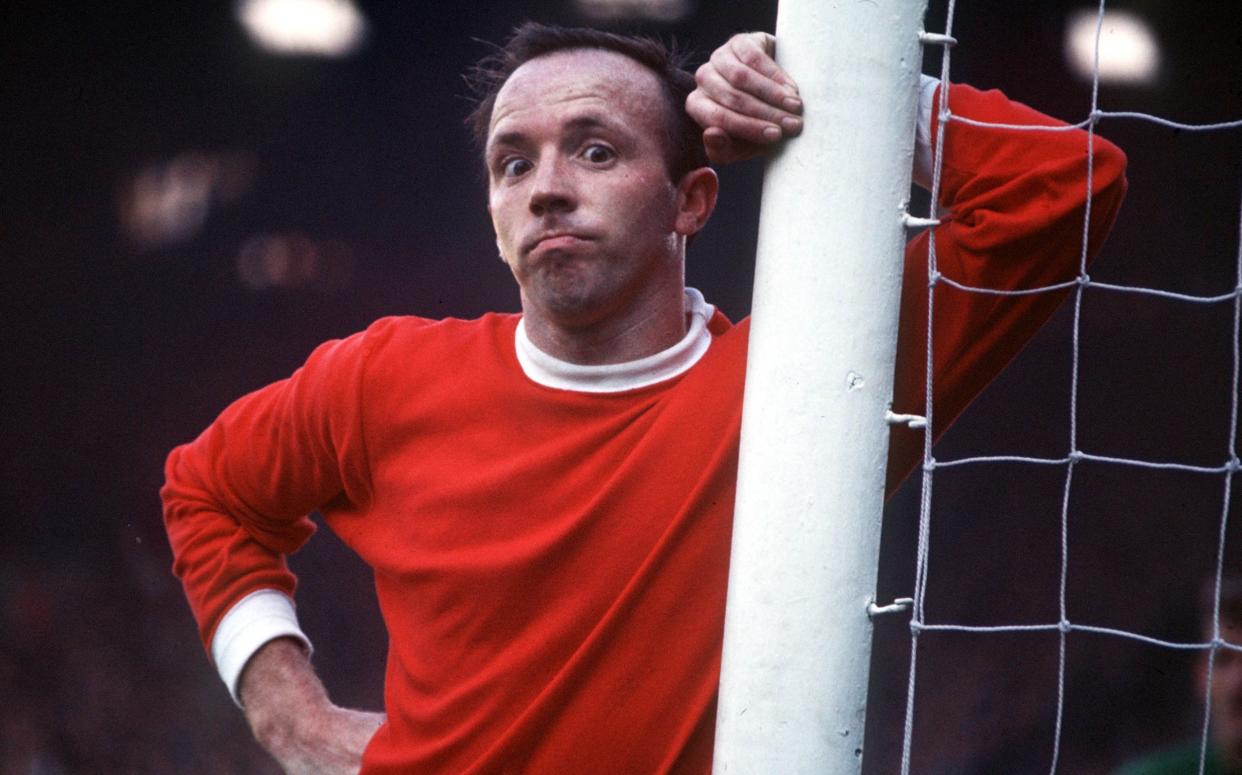Tragedy of dementia in football will not be erased by England’s shirt gesture against Belgium

- Oops!Something went wrong.Please try again later.
- Oops!Something went wrong.Please try again later.
For the second half of England’s friendly against Belgium on Tuesday, the names will vanish from the shirts on the backs of Gareth Southgate’s team.
For those wondering, it is a gesture designed to raise awareness of dementia and highlight how people can lose precious memories.
It is the latest stage of a partnership between the Football Association and the Alzheimer’s Society that has so far raised more than £740,000 for the charity to tackle dementia.
So far, so good, surely?

Yes… but it feels also timely to recall some of the wider context about the tragic story of football and dementia that you will struggle to find in any of the press releases about this partnership.
Like how former professional footballers are, according to the FA’s own funded research, 500 per cent more likely to die of Alzheimer’s disease than the wider population.
Or how the Alzheimer’s Society refuses fundraising partnerships with the tobacco industry or professional boxing, but evidently views professional football differently despite its huge dementia risk profile.
Or how there has been a crucial application to have dementia in football acknowledged as an industrial disease lodged with the Industrial Injuries Advisory Council ever since 2020 that could really use some influential support.
Families of former players are also asking why some of the money from the partnership cannot now go into the new dementia care fund for those footballers in such urgent need of help.
And perhaps also whether funds could go towards an education campaign to ensure the players and fans at Wembley on Tuesday are actually aware of the latest research and how they might best minimise their risks of ever needing the Alzheimer’s Society’s services.
“A partnership where money exchanges hands worries me,” said the family member of one former player with dementia. “Fine, receive the donations. But still hold the FA to account. You need somebody who will stand up and say: ‘This is what you should be doing.’ The question of what caused the dementia... they are sweeping that part under the carpet.”
John Stiles, the son of 1966 World Cup hero Nobby, who died of a type of dementia caused by repeated head impacts, is part of a legal action against the FA and other football governing bodies for an alleged failure to protect players from neurological disease. “It’s very disappointing to see a leading dementia charity sacrifice its principles by partnering with an organisation that has overseen one of the biggest sporting and public health dementia scandals in this country,” he told Telegraph Sport.
The FA said that it was “very proud” of its work with the Alzheimer’s Society and stressed that the choice of charity partner, which was voted on by staff and players, was distinct from its ongoing work on football and dementia.
On that issue, the FA says it has taken a lead role by funding research, advocating concussion substitutes, guidance on heading limits and trialling matches with no heading in Under-12 football. “We have already taken many proactive steps to review and address potential risk factors which may be associated with football whilst ongoing research continues in this area including liaising with the international governing bodies,” said a spokesperson.
The FA, which says that its focus is research and has not so far contributed to the £1 million Premier League/PFA Care Fund, also stressed that it was for the Alzheimer’s Society to allocate the money that had been raised.
Asked if any of the donations would go into the care fund, the Alzheimer’s Society said that its “services are there to help everyone affected by dementia, designed with years of expertise, helping people navigate health and social care services and offering practical and emotional support”. It said that the funds had already made a tangible difference to thousands of fans, players and staff in accessing dementia support and that this season’s donations would transform dementia diagnosis.
Asked if they supported the application to class dementia in football as an industrial disease, the Alzheimer’s Society (did not answer but) said that it was pushing for research to better understand “exactly why there is an increased risk of neurodegenerative disease such as Alzheimer’s disease in professional footballers”.
Of the contrast in its policy between boxing and smoking compared with football, it argued that there was “a difference between a sport involving repeated blows to the head and similarly smoking, an activity endangering lung and heart health, and football, which research has more recently raised potential concerns about and requires further exploration”.
But football also involves repeated head impacts, maybe more often than boxers for some players due to the training and regularity of matches. Awareness of a potentially serious problem also now dates back decades. Just ask Dawn Astle or the medics who were raising warnings to the authorities in the 1990s.
The Alzheimer’s Society is also funding research into professional rugby and football and says that working in direct partnership with leading organisations is the best way to bring about change and awareness. “We will do everything we can to support these families,” said the chief executive Kate Lee.
In that, a close look at aiding both the care fund and the industrial disease application would be especially welcome.

